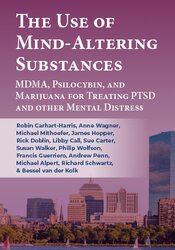Enrol in an online course today for flexible, self-paced learning—no fixed schedule required. Plus, enjoy lifetime access to course materials for convenient revisiting.


-
 Online CourseFrank Anderson’s Master Class in Internal Family Systems TherapyValue: £999.98 *£129.98Frank Anderson’s Master Class in Internal Family Systems Therapy29 Jan, 2024Frank Anderson’s Master Class in Internal Family Systems TherapyValue: £999.98 *£129.98
Online CourseFrank Anderson’s Master Class in Internal Family Systems TherapyValue: £999.98 *£129.98Frank Anderson’s Master Class in Internal Family Systems Therapy29 Jan, 2024Frank Anderson’s Master Class in Internal Family Systems TherapyValue: £999.98 *£129.98 -
Live Events
In-Person or Online— learn with others, ask questions, and use your attendance to earn your CPD.
Live Video WebinarLosing a client to suicide is your worst nightmare.(£299.99)£0.00Losing a client to suicide is your worst nightmare.11 Feb, 2026Losing a client to suicide is your worst nightmare.(£299.99)£0.00 -
-
Books
Discover the transformative insights from renowned authors like Judith Matz, Amy Pershing, and Christy Harrison. Explore their works to gain a deeper understanding of mental health, and more.
 BookWritten by three leading experts in the fields of disordered eating, mental health, and trauma-informed care, this book will become your go-to guide for learning how to reject diet culture, heal your£18.99Written by three leading experts in the fields of disordered eating, mental health, and trauma-informed care, this book will become your go-to guide for learning how to reject diet culture, heal your20 Feb, 2024Written by three leading experts in the fields of disordered eating, mental health, and trauma-informed care, this book will become your go-to guide for learning how to reject diet culture, heal your£18.99
BookWritten by three leading experts in the fields of disordered eating, mental health, and trauma-informed care, this book will become your go-to guide for learning how to reject diet culture, heal your£18.99Written by three leading experts in the fields of disordered eating, mental health, and trauma-informed care, this book will become your go-to guide for learning how to reject diet culture, heal your20 Feb, 2024Written by three leading experts in the fields of disordered eating, mental health, and trauma-informed care, this book will become your go-to guide for learning how to reject diet culture, heal your£18.99 -
CPD Resources
Get expert guidance, practical workbooks, online courses, and more.
 Online Course3 Mar, 2023
Online Course3 Mar, 2023 -
Staff Training
We specialise in meeting the unique training needs of individual teams, bringing staff members together to benefit from the latest therapeutic knowledge, insights and skills. Access a wide range of trainings from the latest trauma treatment modalities, child and adolescent trainings and many more.
×



























